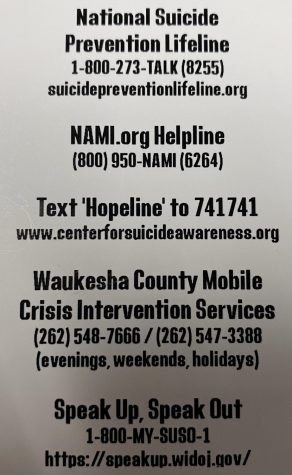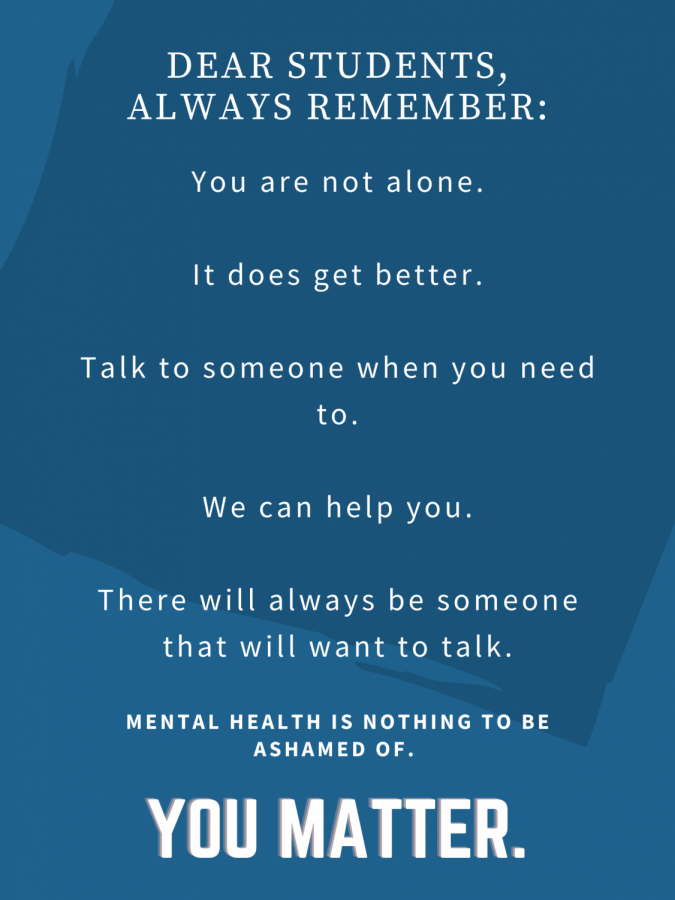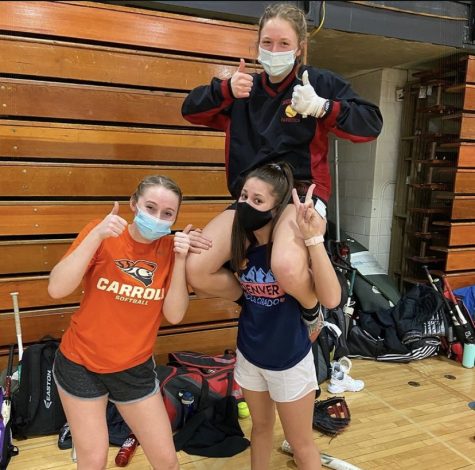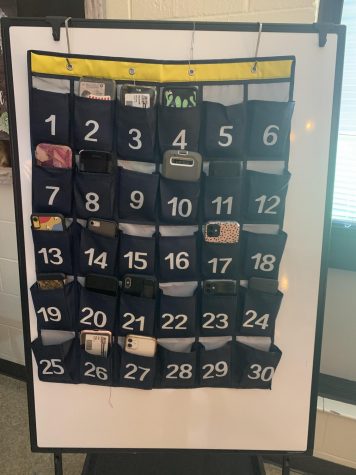Coping with Mental Health
Photo illustration that shows words of encouragement through someone’s hard times
According to 78% of people ages 18-34, mental health is nothing to be ashamed of. As the ages increase, the numbers increase as 89% of people ages 35-64 agree and 92% of people 65 and older. So why do some people treat it like it is? It isn’t a weakness. You’re never alone. If you constantly feel like you are, here are some tips to support you through hard times.
One thing you can do to help is to socialize with others. Most people feel isolated when it comes to depression. Reach out to others; this will help develop a better support system. If you ever feel like you can’t reach out to anyone around you, try a hotline located on the back of your student ID, or maybe try an online therapy session to talk to someone.

As mentioned in ACP, exercising regularly may help, as well. It has been known to reduce symptoms of depression and anxiety. Things that may help you calm down if you cannot exercise include finding a new hobby. You could try a bit of rest, meditating, breathing, drawing, painting, and writing, whether it’s poetry, a story, or a song.
Knowing your possible triggers may help as well, as you can avoid them as much as possible. Things like listening to music and cleaning may help you relax also.
Aside from coping methods, here are some ways to help a friend in need when they need it most.
Things that could help include: Listen actively and validate their feelings, helping them find a support system, educating yourself on what they’re going through and how to help their current conditions, and support them in continuing their therapy.
While it is easy to drop everything and help your friends in need, do not forget to take care of yourself as well. Putting all your energy into someone else might make you feel burned out, maybe a little frustrated. At that point, you won’t be much help to your friend either. Practice some self-care and set boundaries, so you don’t find yourself being there for them at all times.
When it comes to mental health, anything helps. Keep in contact with your friends. Look for the signs. Most importantly, take care of yourself. You know yourself better than anyone else, and you matter.
Jasyn Tracey is a 16-year-old junior at MHS during the 20-21 school year. She has been involved in writing since her sophomore creative class. but has...














